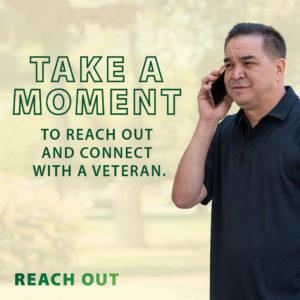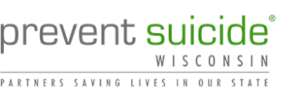Learn to recognize red flags of a crisis
(This information is from the VeteranCrisisline.net)
People can experience an emotional or mental health crisis due to a wide

range of situations. For some, it might be the end of a personal relationship. For others, it might be the loss of a job. For Veterans, these crises can be heightened by their experiences during military service.
When emotional issues reach a crisis point, Veterans and their loved ones should contact the Veterans Crisis Line.
Many Veterans may not show any signs of intent to harm themselves before doing so, but some actions can be a sign that a person needs help. Veterans in crisis may show behaviors that indicate a risk of self-harm. The following can all be warning signs:
- Appearing sad or depressed most of the time
- Hopelessness; feeling like there’s no way out
- Anxiety, agitation, sleeplessness, or mood swings
- Feeling as if there is no reason to live
- Feeling excessive guilt, shame, or sense of failure
- Rage or anger
- Engaging in risky activities without thinking
- Losing interest in hobbies, work, or school
- Increasing alcohol or drug misuse
- Neglecting personal welfare; a deteriorating physical appearance
- Withdrawing from family and friends
- Showing violent behavior, like punching a hole in the wall or getting into fights
- Giving away prized possessions
- Getting affairs in order, tying up loose ends, or writing a will
The following signs require immediate attention:
- Thinking about hurting or killing yourself
- Looking for ways to kill yourself
- Talking about death, dying, or suicide
- Self-destructive behavior such as drug abuse, weapons, etc.
Take a Self-Check Quiz
Crisis, stress, depression, and other issues affect people in different ways. If you feel like you might be heading toward a crisis, treatment can help. Take a confidential, anonymous risk assessment to see how you might benefit from VA or community-based services.
Take the quiz
Check out additional safety materials:
- Pocket Card for Clinicians: Means Safety Messaging
- Toolkit Safe Firearm Storage
- Lethal Means NSSF Gun Safe Infographic
- Reducing household safety risks
Suicide is Preventable! be a part of the mission!
Join a Wisconsin Coalition in your area and share your expertise to reduce suicide!
Follow the link at: Prevent Suicide Wisconsin and Find a Local Coalition
Check out this website in the Wisconsin Fox Valley area: 
- Are you a provider working with a veteran? Learn how to: Ask About Military Experience.
- Also, check out the site: Making the Connection, to learn about Veteran culture.


